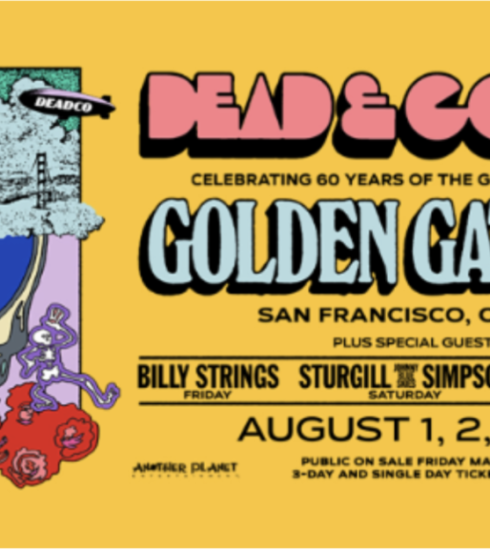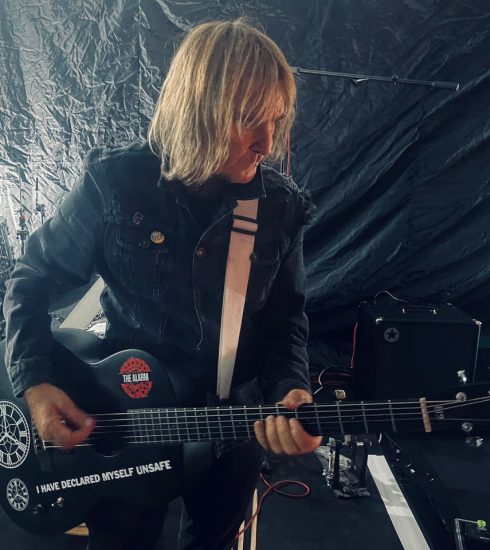Ian Anderson was not only fortunate enough to front one of most influential rock bands of all time but to have made, in his words, “the right career choice.”
The man whose identity, along with that of Pink Floyd, was probably more mistaken than any other in music history spoke with me recently about being ”Jethro Tull,” his peers, his upcoming tour in support of 1972′s Thick As A Brick, the decision to do it’s 2012 sequel Thick As A Brick 2 Whatever happened to Gerald Bostock? and his desire to continue to bring his music to the masses.
Having prepared six questions for what was only scheduled to be a 20 minute interview, I was pleasantly surprised to have Anderson spend double that amount of time with me. He was candid, forthcoming and very satisfied with himself, his music and the journey that has taken him to this point.
The following is a portion of the Q & A that took place just prior to him heading off to a rehearsal for the upcoming tour:
DC: You’re doing Thick As A Brick in its entirety on this tour? Why Now?
Anderson: “Well, last year it turned 40, seemed appropriate to recognize its significance. We will be doing it note for note just like the original in 1972.”
DC: Why the sequel? Thick As A Brick 2 Whatever Happened to Gerald Bostock?
Anderson: “I’ve been approached by many over the years to do a sequel. I suppose that I always thought about it half heartedly, the subject material, the validity of it all didn’t come to me before; but it did now. When it came to me, it came thick and fast, it came in about three weeks. I recall I had already begun the process for my newest album and I put it aside, I often figured that’s probably how it would’ve happened, definitely feet first.”
DC: As you start this tour, did you ever imagine yourself still doing this after all of these years?
Anderson: “I made a good career choice, doors don’t close on you. If I were a pilot I’d be very near (mandatory) retirement, an astronaut I’d be out of work, the only up elevator now is with the Russians. The idea of giving it up is not as increasingly seductive as the idea of fishing or golf. I have no desire to chase some little white ball around a green field or bait a hook. I find the prospect of still doing it into old age fascinating, it’s much better than giving it up. If you are even slightly successful why would you want to quit?”
DC: Along those lines, do you have any thoughts or opinions on some of the bands like the Stones who’ve been doing their thing for all of these years?
Anderson: “The Stones? Hmmm, there are three guys that have been there since the start, Ron Wood is the relative newcomer, he’s been there 30 years. There’s a reason why some of the bands who have been together a long time, their stars so to speak, stay at opposite ends of the stage; they tend to be in it just for the money and/or ego, they don’t necessarily like each other but they keep making music. The problem that I find with bands like the Stones, is that they are old rockers trying to make new music, when their fans want to hear old rockers making or playing old music. Their audiences want to hear the old material and the appeal isn’t necessarily there for the younger set. I really respect when to walk away with dignity. Lennon and McCartney knew when it was time to call it the end. People couldn’t understand why the Beatles split, they knew that they just couldn’t work together any longer. Pink Floyd, Dire Straits, The Police, they all knew when to leave while leaving the groups legacy in tact. I’m not speaking bad of anyone, because they were all very talented musicians in their own right but you see the true talents that rose from the ashes of those acts. Sting went on to a successful solo career, as well as Mark Knopfler and Waters from Floyd; these are the ones that obviously were the driving forces behind the music.”
DC: There’s something to be said for longevity though isn’t there? I mean, you still take Jethro Tull on the road.
Anderson: “A band to me is whoever happens to be in the room. You have to understand that it’s not forever, things change, people change, styles change; you need to rely on them (band mates) for only a short time then it’s time to move on. My current band is exceptional, very adept, great players but if one of them decides to move on I’ll be forced to replace them, it’s an ever evolving process.”
DC: So who is in your current line up?
Anderson: “I’ve been with these mates for awhile now. I have Scott Hammond on Drums, David Goodier on bass guitar, John Hile on keys, Florian Opahle on guitars and Ryan O’Donnell who is truly my alter ego doing additional vocals. Ryan comes from a theatrical background so he dances and sings; he adds a lot to the production.”
DC: So when you look back on your Jethro Tull days from years ago, how do they compare to now; that band versus this solo tour?
Anderson: “I truly hope that the musicians that were a part of it, both now and then, look fondly upon having to do their time with Jethro Tull. I’ve played with over 30 musicians just in the Jethro Tull line up. I don’t wax nostalgic because most of them don’t even perform let alone play anymore; they’ve all gotten on with their lives, involved with other things, careers, family and the what not. Hopefully anyone who takes part in anything that I do will look back at it fondly.”
DC: So what does the future hold for Ian Anderson?
Anderson: “(laughing) Rehearsal! Right now I need to get to rehearsal. I find that the rehearsals help me refocus. Life tends to get in the way at times and rehearsals help; when they’re good it’s comforting, when they are not, well let’s just say that doesn’t happen too often.”
There you have it. Anderson was one of the most informative and interesting interviews that I’ve ever conducted. Ian’s confidence was only overshadowed by his brilliance. He showed no signs of slowing down anytime soon, was excited about embarking on his current tour and was as fresh as ever. Currently the tour is in Europe but it arrives in the U.S. with the first of thirteen shows beginning on July 5 in Las Vegas.





